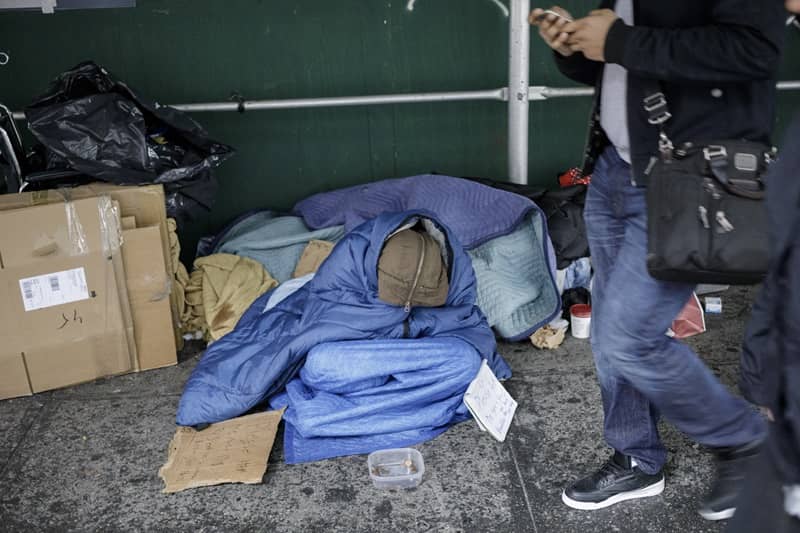
Yes, Homelessness & Drug Addiction Are Related: Here’s How
The connection between drug addiction and homelessness is complex. But, there is a connection. Tragically, some policymakers can’t even make the first step of recognizing that relationship. In the name of equity, anti-racism, and other progressive trends, Portland has ignored the relation between substance abuse disorders and the experience of homelessness altogether. This comes at a time when rates of housing instability reach record highs, fentanyl addictions skyrocket, and drug-related crime jumps. Portland elites seem perfectly willing to sacrifice the most vulnerable populations on the altar of wokeness.
The Clear Data on Homelessness & Addiction
The numbers regarding the interplay between homelessness and drug addiction are clear:
- The National Coalition for the Homeless indicates that substance abuse disorders occur at higher rates among homeless populations compared to the rest of society.
- Using drugs makes it 7x more likely that an individual will experience homelessness.
- The U.S. Department of Housing and Urban Development estimates that around 38% of homeless individuals are addicted to alcohol while another 26% abuse other drugs.
- Around 66% of unsheltered individuals have a history of alcohol or drug dependency issues.
- Two-thirds of homeless people point to drugs and/or alcohol as a reason for their current situation.
A Two-Way Road
It’s critical to note that there isn’t a one-sided causality between homelessness and drug addiction. Instead, it’s a two-way road. Substance dependency can contribute to the loss of a home by way of failed payments, inability to maintain employment, or social and familial repercussions. By the same token, the unbelievably harrowing experience of homelessness can lead people to use drugs as an escape, eventually leading to addiction. More often than not, these two factors are inextricably linked and mutually reinforcing. This harsh reality demands a holistic approach to solving the homelessness crisis that addresses both housing insecurity and drug addiction. Only focusing on one element is dooming the entire project to failure.
Why the Portland Model Fails
The Portland Model refuses to acknowledge the connection between homelessness and drug addiction, resulting in costly, ineffective, and damaging policies. This strategy is failing on three major fronts:
1. Drug Decriminalization (Measure 110)
If politicians in Portland acknowledged the evident connection between homelessness and drug addiction, they would see Measure 110 for what it is: a barrier to overcoming homelessness. Allowing for the unfettered spread and use of even the most hardcore and harmful drugs at the peak of a homeless epidemic is beyond poor policy. It’s counterproductive at best and catastrophic at worst.
2. Soft-on-Crime
People are understandably squeamish about forcing recovery on individuals suffering from a substance abuse disorder. However, that calculation changes once a crime is committed. Portland’s soft-on-crime policies fail to prosecute even the most egregious crimes, under the guise of protecting the homeless. In reality, these policies remove the only legal mechanism for forcing someone into recovery, leaving cities with no meaningful way to intervene.
3. “Harm Reduction” Model
In theory, Portland’s so-called “harm reduction” approach aims to minimize the adverse effects of drug addiction. In practice, however, it enables the negative repercussions it seeks to minimize. Rather than offering a pathway out of addiction and homelessness, the harm-reduction strategy keeps individuals in a cycle of dependency and housing instability. Plus, people start actively seeking out areas where drug use and criminal activity are accepted, resulting in further destabilization.
By failing to connect the dots between homelessness and drug addiction (or purposefully ignoring the connection), Portland is incapable of addressing the root causes of the homeless crisis. No policy made within this framework will make a dent in the problem.
A Compassionate & Effective Solution
The key to solving chronic homelessness is addressing the underlying causes of this crisis. That means taking a realistic look at the connection between homelessness and substance abuse. As a proud member of Clackamas County, I champion what we’re doing right but also acknowledge there’s more to do.
In pursuit of “A More Livable Community”, my comprehensive, recovery-oriented approach to ending chronic homelessness focuses on:
- Decreasing drug addiction and alleviating mental health disorders to limit the causes of homelessness
- Implementing compassionate and supportive recovery plans
- Building personalized plans to reintegrate struggling individuals as productive citizens
I’m running for Clackamas County Commissioner to make a real difference in our county through practical, effective, and solution-oriented policies driven by compassion and humanity. Join me in this effort to bring about positive change in Clackamas County. Your support is crucial. You can volunteer or contribute to join our mission to make this wonderful county a more livable community. Let’s make a change together.
